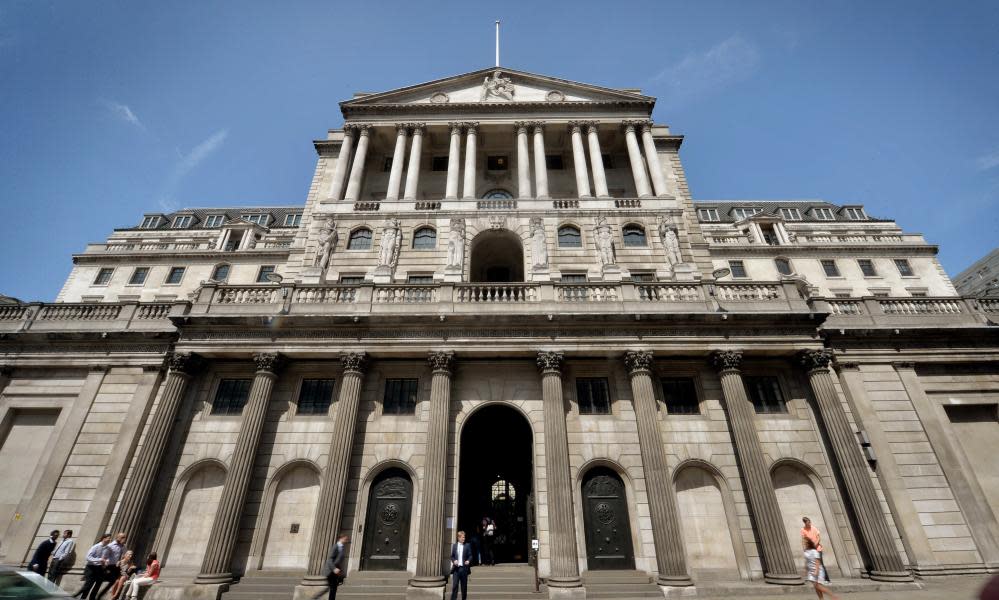Top Bank of England economist warns of 1970s-style price inflation

Britain’s economy will “power through in the months ahead”, according to a senior Bank of England policymaker, “moving swiftly from bounce-back to boom”.
The recovery will resemble a bouncing tennis ball and outpace the US and the rest of the G7 this year, said Andy Haldane, the central bank’s outgoing chief economist.
Related: Markets fall again as inflation worries rattle investors – business live
Such is the strength of the likely turnaround from last years slump – the worst in 300 years after the pandemic first hit – that inflation could return with a vengeance, wreaking a 1970s-style surge in prices that could turn a boom into a bust.
Haldane, who has consistently argued that the recovery would prove V-shaped with the effect of quickly reversing the downturn, said the bounce-back would be so strong that as many new jobs could be created as lost this year, meaning “little or no” rise in unemployment.
“Having regained their spending and socialising habit, and with money in their pockets, households and businesses will, I suspect, maintain the momentum in demand,” he said in an article in the Daily Mail. “A year from now, it is realistic to expect UK growth to be in double digits, activity to be comfortably above pre-Covid levels and unemployment to be falling.
“Such a tennis ball bounce in the UK economy would put it at the top of the G7 growth league table.”
Watch: What is inflation and why is it important?
However, he said it was possible the economy would overheat next year as businesses struggled to hire enough staff and consumers, ready to splash the £150bn of savings stored up in deposit accounts, outbid each other for goods and services.
Inflation would inflict “collateral damage on our finances, squeezing the purchasing power of our pay and causing rises in the cost of borrowing” and in response, the Bank of England should rein in plans to inject almost £1tn of electronic cash into the economy by the end of the year.
“To be clear, this is not a case of slamming on the brakes, but rather gently taking our foot off the accelerator,” he said. “Doing so now reduces the risk of a handbrake turn – for borrowing costs and the economy – down the road, with all of the disruption this would entail for our jobs and finances.”
Last week, Haldane was the only member of the Bank’s nine-strong monetary policy committee in favour of reining in stimulus, casting a lone vote to cut the overall size of the Bank’s £895bn bond-buying scheme by £50bn.
Most of Haldane’s colleagues on the MPC are more circumspect about the economy’s potential to recover, and while the committee increased its growth forecast this year from 5% to 7.25% and said unemployment would stay low, peaking at 5.5%, they said inflation would remain subdued and settle below the bank’s 2% target over the next two years.
The latest figures from the Office for National Statistics showed that online job adverts for roles in catering and hospitality were above pre-pandemic levels at 103% of its February 2020 average level, an increase of 46 percentage points since 9 April 2021, just before hospitality restrictions began to ease in the UK.
There were further encouraging signs from a jobs survey that found the proportion of the workforce on furlough fell to 11% from 13% in the first week of May.
The ONS said an increase in eating out in the week to 6 May after the easing of restrictions sent debit and credit card purchases up 7 percentage points to exceed pre-pandemic levels in February 2020 average.
However, seated reservations on 10 May had slumped to 60% of the level of the previous week, showing many customers were reluctant to eat outside.
Watch: Why can't governments just print more money?

 Yahoo News
Yahoo News 
